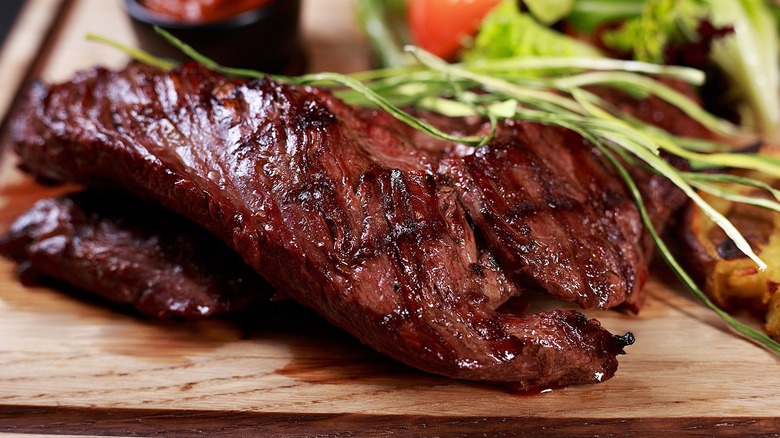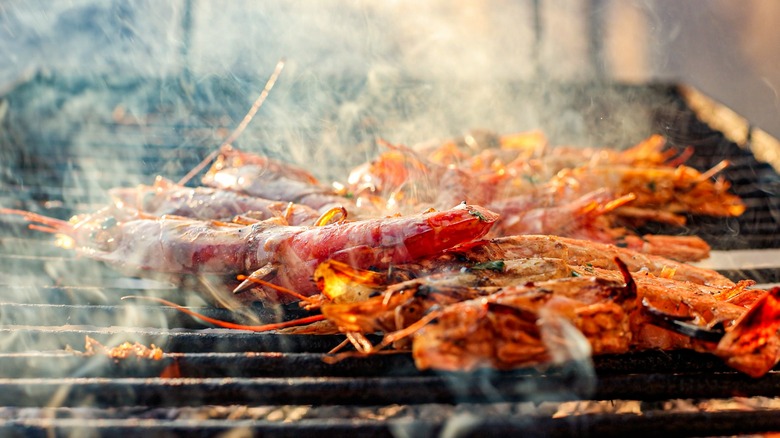The One Type Of Meat Professional Chefs Always Brine Before Hitting The Grill
You can always walk into your local grocery store and buy premeasured brine mix, but where's the fun in that? With some brining skills, you can make your own. When you mix water and salt, you're essentially making brine in the traditional sense. And when you put meat into the brine, you're either preserving, tenderizing, moisturizing, flavoring, or simply seasoning the meat.
You can go a step further and replace water or enhance it with other liquids such as bourbon, wine, beer, apple juice, and lemon juice, to mention but a few. If you wish, you can add more than just salt by including sugar, garlic, pepper, lavender, thyme, and citrus zest among other aromatics and spices. In short, all you need for brine is already in your cabinet and spice rack.
There is a simple guide for making brine. For every cup of water (or any other liquid you choose), add a tablespoon of salt to make a brine (per Exploratorium) For better results, use kosher salt. You can brine whatever meat you wish, but there is one type that professional chefs say you must brine before grilling.
Always brine lean meat
Lean meats lack an important substance that makes it a must to brine them before grilling in order to ensure they remain juicy even after the heat of the grill.
"I cannot speak enough about the importance of a brine," Isaac Toups, owner, and chef of Toups Meatery and cookbook author, told Reader's Digest. "Pork chops, chicken, and lean cuts of beef need brining before hitting the grill because they lack the fattiness to withstand a long time on a hot surface without drying out." Other expert chefs also support brining. For example, Paula Deen recommends brining your turkey overnight for the same reasons of adding moisture and flavor (per Paula Deen), while Ina Garten prefers the dry brine option (YouTube).
To get good results when brining lean meat, you should remember a few rules. For example, small cuts of meat take less time to completely brine, with seafood taking between 30 minutes to two hours, and a full chicken going up to six hours. In addition to this, you should always brine your lean meat in the fridge, making sure that it's covered completely by the brine. Once done, remove your meat and dispose of the brine. You should also decide if dry brining or wet brining is better for your situation.

